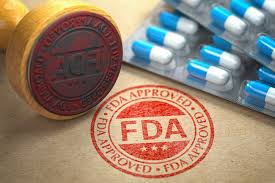
Breaking News
 Microsoft Hands Over Encryption Keys #fyp #technews #microsoft #computer #secure
Microsoft Hands Over Encryption Keys #fyp #technews #microsoft #computer #secure
 Windows Now Requires Age Verification? #fyp #technews #windows #microsoft #privacy
Windows Now Requires Age Verification? #fyp #technews #windows #microsoft #privacy
 Iran's new supreme leader is named as Ali Khamenei's son Mojtaba - Iranian TV network report
Iran's new supreme leader is named as Ali Khamenei's son Mojtaba - Iranian TV network report
 Bill Pervs Out Over Epstein Memories, Hillary Goes Berserk, And They Both Lied: Top Viral Moments...
Bill Pervs Out Over Epstein Memories, Hillary Goes Berserk, And They Both Lied: Top Viral Moments...
Top Tech News
 US particle accelerators turn nuclear waste into electricity, cut radioactive life by 99.7%
US particle accelerators turn nuclear waste into electricity, cut radioactive life by 99.7%
 Blast Them: A Rutgers Scientist Uses Lasers to Kill Weeds
Blast Them: A Rutgers Scientist Uses Lasers to Kill Weeds
 H100 GPUs that cost $40,000 new are now selling for around $6,000 on eBay, an 85% drop.
H100 GPUs that cost $40,000 new are now selling for around $6,000 on eBay, an 85% drop.
 We finally know exactly why spider silk is stronger than steel.
We finally know exactly why spider silk is stronger than steel.
 She ran out of options at 12. Then her own cells came back to save her.
She ran out of options at 12. Then her own cells came back to save her.
 A cardiovascular revolution is silently unfolding in cardiac intervention labs.
A cardiovascular revolution is silently unfolding in cardiac intervention labs.
 DARPA chooses two to develop insect-size robots for complex jobs like disaster relief...
DARPA chooses two to develop insect-size robots for complex jobs like disaster relief...
 Multimaterial 3D printer builds fully functional electric motor from scratch in hours
Multimaterial 3D printer builds fully functional electric motor from scratch in hours
 WindRunner: The largest cargo aircraft ever to be built, capable of carrying six Chinooks
WindRunner: The largest cargo aircraft ever to be built, capable of carrying six Chinooks
The FDA's War on America's Health

For most of my life, I've observed the FDA belligerently suppress natural treatments and any unorthodox therapy which threatens the medical monopoly while simultaneously railroading through a variety of unsafe and ineffective drugs regardless of how much public protest the agency meets. Consider this 2004 Senate testimony by the FDA scientist who got Vioxx banned that accurately described exactly what would come to pass with the COVID vaccines two decades later.
As such, I do not hold the FDA in a positive light, especially given that during COVID-19, I (like many others) spent hundreds of hours trying to get the agency to allow the limited use of off-patent therapeutics for COVID-19—all of which ultimately went nowhere due to the unjustifiable roadblocks the agency kept putting up.
Over the past year, especially since Trump's election, I've received many questions about FDA reform. To address the issue properly, I've carefully examined both sides.
In medicine, "sensitivity" refers to a test's ability to correctly identify those who have a condition (e.g., detecting an infection), while "specificity" measures how well the test avoids false positives (i.e., correctly identifying those who don't have the condition). The challenge is that improving one often reduces the other. For example, increasing the PCR cycle threshold in COVID tests made it more likely to detect infections (higher sensitivity), but also increased false positives (lower specificity). This trade-off leads to problems, like breast cancer screenings, where high sensitivity can result in false positives and unnecessary "treatments" for women who don't actually have cancer.
The FDA faces a similar challenge: it must prevent harmful foods and drugs from reaching the market while ensuring useful products aren't blocked. Though this seems straightforward, it's incredibly difficult, and the FDA has often failed at both, even with leadership dedicated to public health.
Crime Against the Food Law
In the late 1800s, food producers were selling adulterated products, and pharmaceutical companies peddled medicines with secret ingredients like opium and alcohol. Public outrage grew, especially after exposés like Upton Sinclair's The Jungle, which helped spark the 1906 Pure Food and Drug Act. This law gave the Bureau of Chemistry the power to ensure accurate labeling and prevent harmful additives in food.
The director of the Bureau of Chemistry (and thus the first head of the FDA), Harvey Wiley conducted tests on food additives, proving they made healthy volunteers sick. While the public and many scientists supported his findings, the food industry fought back with powerful lobbyists and legal tactics.

 RNA Crop Spray: Should We Be Worried?
RNA Crop Spray: Should We Be Worried?

